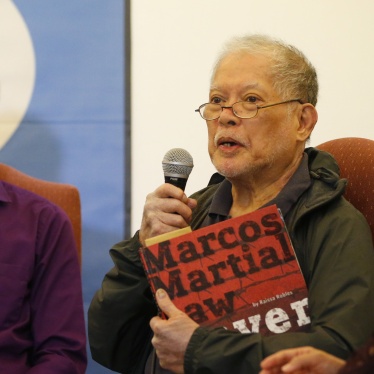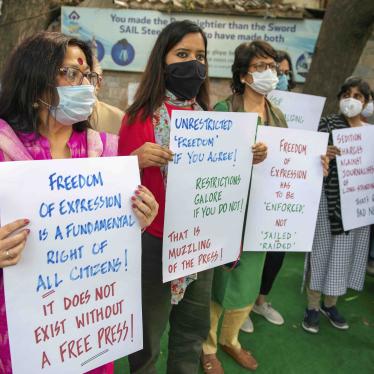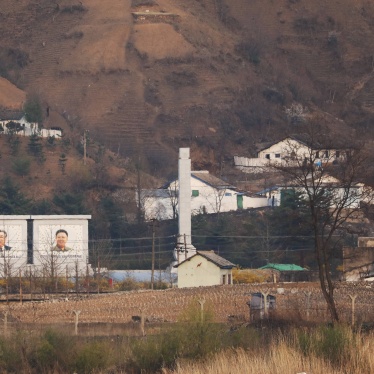(New York) - Cambodia must not repatriate seven North Korean asylum seekers to North Korea, where they face detention, torture and even execution, Human Rights Watch said today.
Human Rights Watch called on the Cambodian government to allow the U.N. High Commissioner for Refugees immediate access to the North Korean asylum seekers, who have been held by immigration police in Phnom Penh since September 5. The group, which includes two women, has reportedly requested to resettle in South Korea.
In recent years, hundreds of North Koreans have fled to Southeast Asian countries after transiting through China. In late July, 468 North Koreans were flown from several Southeast Asian countries to Seoul via Vietnam. Some had reportedly stayed in Southeast Asia for more than a year.
“Cambodians who survived the Khmer Rouge regime are all too familiar with the kinds of severe repression that North Koreans suffer,” said Brad Adams, executive director of Human Rights Watch’s Asia Division. “Cambodia should honor its obligations as a party to the Refugee Convention to protect North Korean asylum seekers, not send them back.”
Human Rights Watch and others have reported on the widespread repression of human rights in North Korea. There is no freedom of expression or religion, and independent labor organizations are illegal. Like the Khmer Rouge, which ruled Cambodia from 1975-79, the North Korean government divides the population into different categories—“core,” “wavering,” and “hostile”—based on the government's assessment of an individual’s political loyalty. Basic services, such as access to healthcare and education, are parceled out according to this classification scheme.
Individuals suspected of having tried to exercise one of the many basic freedoms prohibited in North Korea are perceived as troublemakers. They are arrested, permitted no contact with family or legal counsel, forced to confess under often brutal torture, and sent to prison. Those in prison face cruel, inhuman and degrading treatment; many die because of mistreatment, malnutrition and lack of medical care.
For political crimes, whether actual or perceived, the entire family of the accused can be sent to forced labor camps, sometimes for the rest of their lives. Even if the families avoid such a fate, they are often barred from good jobs or higher education. The number of political prisoners held in prisons is estimated to be as many as 200,000.
“North Koreans who leave their country without state permission are detained, tortured and even executed on return to their country, said Adams. “The Cambodian government should be going out of its way to provide protection to North Korean asylum seekers.”
As a party to the 1951 Refugee Convention and its 1967 Protocol, and under customary international law, Cambodia has an international obligation not to forcibly return asylum seekers to a place where their lives or freedom would be threatened because of persecution. The Torture Convention, which Cambodia also ratified, prohibits returning any person to a state where there are substantial grounds for believing that they would be in danger of being subjected to torture.
During the last decade, large numbers of North Koreans have fled their homeland for a number of reasons, including fear of political persecution. Once abroad, they may face imprisonment upon return, even if they left for other reasons, such as to find food. This transforms many North Korean migrants into refugees sur place, or persons who, while abroad, become entitled to protection as refugees because of the risk of political persecution should they return.







